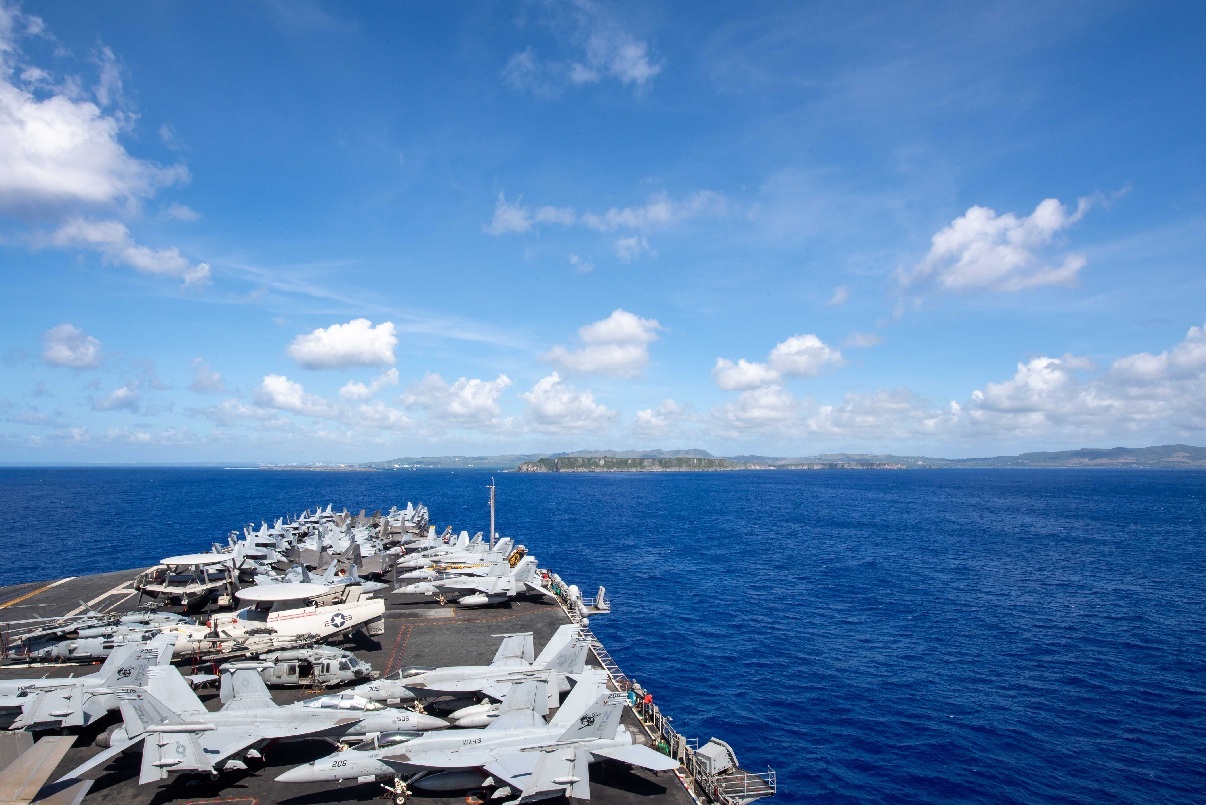The United States was tracked sending a specialized military aircraft, capable of detecting nuclear activities, to a key air base in Japan for a possible air-sampling mission.
The WC-135R atmospheric collection aircraft, better known as Constant Phoenix, arrived at Kadena Air Base on the Japanese island of Okinawa, flight tracking data shows.
Newsweek contacted the U.S. Air Force, the Russian and Chinese defense ministries, as well as the North Korean embassy in Beijing, with a written request for comment.
Why It Matters
Kadena Air Base is a U.S. air power hub in the Western Pacific that hosts fighter and reconnaissance aircraft. The Constant Phoenix aircraft is also known as "nuke sniffer" as it detects radioactive "clouds" by collecting particulate and gaseous effluents and debris.
The arrival of the Constant Phoenix aircraft in Japan comes as nuclear-armed North Korea warned that any further provocations from Washington and its treaty allies, namely Japan and South Korea, would be met with an "overwhelming" response from Pyongyang.
What to Know
A U.S. Air Force Constant Phoenix aircraft, which is assigned to the 45th Reconnaissance Squadron with the registration number 64-14836, left its home at Offutt Air Force Base in Nebraska on Saturday, data captured by the aircraft tracking service Flightradar24 shows.
The aircraft reached Majors Airport in Greenville, Texas, and left for Elmendorf Air Force Base in Anchorage, Alaska, on Monday. After making a brief stop there, it continued its westward journey as it flew across the North Pacific Ocean off the Russian Far East coast.
The "nuke sniffer" aircraft arrived at its final destination in Japan, Kadena Air Base, on Tuesday night local time. It remained at the base as of Wednesday afternoon local time.

It wasn't immediately clear what the purpose of the deployment was. According to the U.S. Air Force, the Constant Phoenix fleet routinely conducts air-sampling missions globally, including over the Far East, a region that encompasses East, North and Southeast Asia.
"Currently the air-sampling mission supports the Limited Nuclear Test Ban Treaty of 1963, which prohibits any nation from above ground nuclear weapons testing," the U.S. Air Force said. The Constant Phoenix is the only aircraft conducting such operations.
Russia, China and North Korea are the only nuclear-armed countries in the Far East.
Other regions for air-sampling missions include the Indian Ocean, the Bay of Bengal, the Mediterranean Sea, the polar regions and off the coasts of South America and Africa.
What People Are Saying
A U.S. Air Force fact sheet read: "The [WC-135R] is equipped with external flow-through devices to collect particulates on filter paper and a compressor system for whole air samples collected in holding spheres."
Specialist outlet The Aviationist wrote in an article on December 20, 2024: "To carry out their critically important atmospheric sampling mission, the three WC-135Rs are regularly deployed worldwide...In fact, the U.S. Air Force rarely acknowledges the deployment of the Constant Phoenix."
What Happens Next
It remains to be seen when the Constant Phoenix will execute its first mission from Kadena Air Base. Its deployment also comes after President Donald Trump questioned the U.S. security commitment to Japan, saying: "they don't have to protect us."
About the writer
Ryan Chan is a Newsweek reporter based in Hong Kong, where he previously had over a decade of experience at ... Read more




